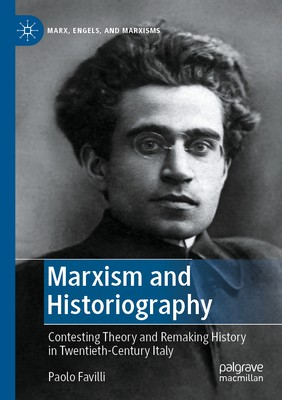
- We will send in 10–14 business days.
- Author: Paolo Favilli
- Publisher: Palgrave Macmillan
- ISBN-10: 303083607X
- ISBN-13: 9783030836078
- Format: 14.8 x 21 x 2.1 cm, softcover
- Language: English
- SAVE -10% with code: EXTRA
Reviews
Description
Eminent Italian historian Giovanni Levi once notably remarked that "no one is a Marxist anymore," pointing to a paradox in Italian cultural history. While what is called Marxism was supposedly hegemonic over Italian culture, and especially history writing, for decades in the postwar period, it then seems to have suddenly disappeared.
This study questions such a vision of a monolithic and hegemonic Marxism. It starts from the most effective anecdote to all ideologising narratives--that is, research into the texts themselves. It sees the Marxist historiography of the post-1945 period as a history in the making, in which references to Marxian theory were a fundamental factor driving historiographical innovation. This allows the book to bring to light a highly original experience in the development of historiography, based on the long Italian tradition of reflection on historical knowledge.
EXTRA 10 % discount with code: EXTRA
The promotion ends in 18d.16:35:34
The discount code is valid when purchasing from 10 €. Discounts do not stack.
- Author: Paolo Favilli
- Publisher: Palgrave Macmillan
- ISBN-10: 303083607X
- ISBN-13: 9783030836078
- Format: 14.8 x 21 x 2.1 cm, softcover
- Language: English English
Eminent Italian historian Giovanni Levi once notably remarked that "no one is a Marxist anymore," pointing to a paradox in Italian cultural history. While what is called Marxism was supposedly hegemonic over Italian culture, and especially history writing, for decades in the postwar period, it then seems to have suddenly disappeared.
This study questions such a vision of a monolithic and hegemonic Marxism. It starts from the most effective anecdote to all ideologising narratives--that is, research into the texts themselves. It sees the Marxist historiography of the post-1945 period as a history in the making, in which references to Marxian theory were a fundamental factor driving historiographical innovation. This allows the book to bring to light a highly original experience in the development of historiography, based on the long Italian tradition of reflection on historical knowledge.


Reviews